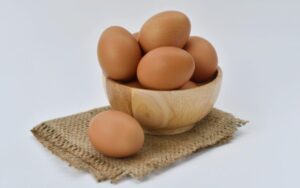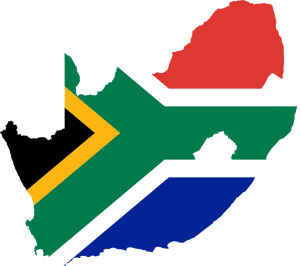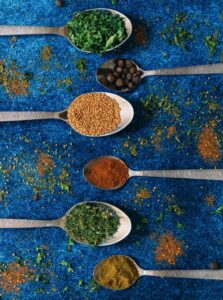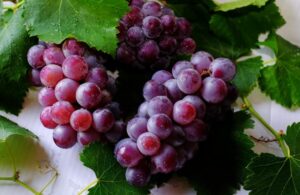Introduction
The potato (solanum tuberosum) is recognised as an important foodstuff worldwide and is seen as a key component in the worldwide fight against hunger and malnutrition and the creation of food security. Potatoes are packed with vitamin B3, B5, B6, C and fibre. They are ranked after rice, wheat and maize as the world’s fourth largest food crop. (Some sources like the International Potato Centre – see next heading – rank potatoes third, after rice and wheat).
In addition to being eaten as a vegetable by humans, potatoes can be used as feed for livestock. The domestic processing sector uses potatoes for three processed products i.e. crisps, frozen and fresh French fries. Potato starch is used in the food industry as a thickener and binder of soups and sauces, and elsewhere as an adhesive and for the manufacturing of papers and boards. It holds potential as a base for biodegradable packaging too. Potatoes can also be used to brew alcoholic beverages like vodka.
Potatoes can also be used, of course, as seed tubers for growing the next season’s crop.
Source: Potatoes South Africa (adapted) and http://en.wikipedia.org/wiki/Potato
International business environment
- World potato production was estimated at 375 million tonnes in 2022. Asia and Europe account for 80% of total potato production, Africa 7.2% (FAOSTAT, 2024 cited by BFAP 2024).
Further reference:
- www.cipotato.org – website of the International Potato Center (CIP). CIP Publications include a wide range of literature on potatoes, sweet potatoes, andean roots and tubers, potato diseases, true potato seed, and much more. English and Spanish titles available.
- www.potatopro.com – “The resource for the global potato industry”
- Find the latest Overview Global Potato Market at www.freshplaza.com.
South Africa: imports and exports
- Exports only account for around 7% of the local crop. Global market dynamics have a limited impact and the sector responds mostly to the domestic market (BFAP, 2024).
- Potato exports in 2023/24 went mostly to Africa (96%), and the Middle East (4%) (FPEF, 2025).
- There are limitations in the international trade of potatoes as, once harvested, they are “highly perishable” and are thus are not a good export crop (BFAP, 2024, 2023).
- The annual Food Trade SA publication is a good source of export statistics for fresh produce, including potatoes. Find it at https://ppecb.com/documents.
Local business environment
- The value of the primary potato industry was expected to be between R8 and R13 billion in 2023 and the secondary industry between R25 billion and R45 billion, with approximately 50 000 people finding employment as permanent and seasonal labourers (PSA, 2024).
- Challenges in the industry in 2023 – loadshedding, high input costs, relative profitability of alternative field crops – led to a decline in the planting areas where most of the country’s potatoes come from. The crop is usually around 52 000 hectares (BFAP, 2024, 2023).
- The bulk of potato producers are in Limpopo (27%); the Free State (Eastern, 10%; Western, 6%; South Western, 3%); the Western Cape (Sandveld,12%; Ceres, 1%; Southern Cape, 1%); and KwaZulu-Natal (16%) (PSA, 2024). Potato producers are also found in the Northern Cape (9%), Mpumalanga (7%), North West (4%), Northern Cape (4%) and Gauteng (3%) (PSA, 2024).
- Approximately 70% of potatoes are consumed fresh, procured either in the formal or informal market, with the balance processed into potato chips and crisps.
- Load shedding and the high input cost structure for this sector mean that there is “little room for error” (BFAP, 2024, 2023).
The potato crop is distributed as follows:
- Formal market (Fruit & Veg City, Pick ‘n Pay etc).
- Informal market (informal traders who buy 10kg pockets and repackage them for sale in smaller quantities).
- Processing (McCain Foods, Simba, etc).
- Seed for the next season’s crop.
- Export – South Africa is not a major exporter of potatoes. Exports go mainly to neighbouring countries.
Source: Potatoes South Africa
Further reference:
- The annual Bureau for Food and Agricultural Policy (BFAP) Baseline Agricultural Outlook includes a discussion on potatoes. Find the document at www.bfap.co.za.
- Check whether the Directorate Marketing at the Department of Agriculture, Land Reform and Rural Development (DALRRD) has resumed publishing the annual A Profile of the South African Potato Market Value Chain which used to provide a useful overview of this sector.
Potato farming: Award-winning farmer, Zama Buthelezi, shows us how (video from Farmer's Weekly, 2018)
For the newcomer
Find grower guides and other information under the “Websites and publications” heading.
National strategy and government contact
- Department of Agriculture, Land Reform and Rural Development (DALRRD) www.dalrrd.gov.za Find details of relevant Directorates like Directorate: Plant Health and Directorate: Plant Production on the website.
- National Agricultural Marketing Council (NAMC) www.namc.co.za Statutory levies administered by the NAMC go to the Potato Industry Development Trust.
- Perishable Products Export Control Board (PPECB) www.ppecb.com
- Plantovita plays the important role of detecting and identifying any harmful diseases that threaten the potato sector. Read about Plantovita at www.plantovita.co.za.
- Product Control for Agriculture (Prokon) www.prokonsa.co.za Prokon is authorised by the Department of Agriculture, Land Reform and Rural Development (DALRRD) to apply the official requirements applicable to the grading, marking and packing of potatoes.
Role players
Further reference:
Training
- Agricultural Colleges provide courses in vegetable production. Potato production is included, or can be a separate course all on its own.
- Read about farm based training, internships and workplace experience, and more at www.potatoes.co.za.
- In addition to the training provided to developing potato producers, PSA also manages the Potato Industry Development Trust Bursary Scheme which makes bursaries available to deserving students for diploma, undergraduate and post graduate studies related to the potato industry.
Research
- Universities and Agricultural Colleges/Provincial Departments of Agriculture do research and training in potatoes. Find the list of agricultural colleges and universities on the “Agricultural education and training” page.
- Read about calls for research, potato industry research strategy, and research management at www.potatoes.co.za.
Exporters
- The annual Fresh Produce Exporters Forum (FPEF) directory gives details of companies that export potatoes. Find it at https://fpef.co.za.
Websites and publications
CHIPS is a magazine targeted specifically at the potato industry. This can be read at www.potatoes.co.za/chips-online/.
Contact Potatoes South Africa for the following:
- The Potato Industry Report is published annually and provides an overview on the activities of Potatoes South Africa, Potato Certification Service, Prokon and Potato Laboratory Services.
- The Potato Production Quick Reference Guide was published to serve as a handy guide for small scale potato producers. It is available in English, Zulu and Sotho from Potatoes South Africa free of charge.
- The Guide to Potato Production in South Africa (also in Afrikaans: Handleiding vir aartappelproduksie in Suid-Afrika) constitutes 173 pages of useful information for farmers, students and field officers.
- Best practice for the handling of seed potatoes
- Potato guidelines
Visit www.potatonation.co.za, a campaign by Potatoes South Africa.
Find the Info Paks on potato production at www.dalrrd.gov.za. Also on the DALRRD website, check whether publishing of the annual Potato Market Chain Value Profile has resumed.
CD Roms from the ARC-PHP (Plant Health and Protection) include: (i) Crop Pests, Vol. 3: Potatoes And Other Vegetables (also available as a book) (ii) Medically Important Spiders And Scorpions Of Southern Africa. Write to booksales [at] arc.agric.za or infopri [at] arc.agric.za.
The ARC-Agricultural Engineering (ARC-AE) has a publication Agro-processing of Root Crops (Asparagus, beetroot, carrots, garlic, onions, potatoes, sweet potato). Call 012 842 4017 or email iaeinfo [at] arc.agric.za for a copy.
The AgriSETA Assessment Guide Primary Agriculture “Monitor the establishment of a crop” includes potato tubers. Another relevant learner guide is “Harvesting agricultural crops”. Find these and other material at www.agriseta.co.za.
A number of leaflets are available from the KwaZulu-Natal Department of Agriculture, including “Potato production for small-scale farmers”. Find these at www.kzndard.gov.za.
Find the “Vegetables” option at https://wikifarmer.com.
Some articles
- Staff Reporter. 2025, February 24. “Water-smart farming Sandveld’s answer to climate crisis”. Food for Mzansi. Available at www.foodformzansi.co.za/water-smart-farming-sandvelds-answer-to-climate-crisis
- Reporter. 2025, February 10. “South Africa considers exporting potatoes to Russia”. Fresh Plaza. Available at www.freshplaza.com/africa/article/9703448/south-africa-considers-exporting-potatoes-to-russia/
- Botha L. 2025, January 2. “No need to panic over supply – Potatoes SA CEO”. Farmer’s Weekly. Available at www.farmersweekly.co.za/agri-news/south-africa/no-need-to-panic-over-supply-potatoes-sa-ceo/
- Tembo P. 2024, November 25. “EC farmers thrive with Potatoes SA’s enterprise programme”. Food for Mzansi. Available at www.foodformzansi.co.za/ec-farmers-thrive-with-potatoes-sas-enterprise-programme
- Arnoldi M. 2024, November 25. “PepsiCo South Africa installs new R746m potato chip production line at Isando factory”. Engineering News. Available at www.engineeringnews.co.za/article/pepsico-south-africa-installs-new-r746m-potato-chip-production-line-at-isando-factory-2024-11-25
- FAO. 2024, April 15. “FAO guide to new International Day of Potato sets scene for first-ever observance on May 30”. Available at www.fao.org/newsroom/detail/fao-guide-to-new-international-day-of-potato-sets-scene-for-first-ever-observance-on-may-30/en
- Kriel G. 2023, May 17. “‘Duties will protect potato industry against unfair trade’”. Farmer’s Weekly. Available at www.farmersweekly.co.za/agri-news/south-africa/duties-will-protect-potato-industry-against-unfair-trade/
- Kriel G. 2022, December 6. “French fry import tariffs remain a ‘hot potato’ – stakeholders”. Farmer’s Weekly. Available at www.farmersweekly.co.za/agri-news/south-africa/french-fry-import-tariffs-remain-a-hot-potato-stakeholders/
- Presence C. 2022, August 25. “Expect a slap in the chips as potato price hike looms”. Eye Witness News. Available at https://ewn.co.za/2022/08/25/expect-a-slap-in-the-chips-as-potato-price-hike-looms
- Nkunjana T. 2022, August 22. “Potatoes: What higher import costs mean for consumers”. Food for Mzansi. Available at www.foodformzansi.co.za/potatoes-what-higher-import-costs-mean-for-consumers/
- Kriel G. 2021, December 6. “Potato farmers set to benefit from mobile data sharing app”. Farmer’s Weekly. Available at www.farmersweekly.co.za/agri-news/potato-farmers-set-to-benefit-from-mobile-data-sharing-app/
- Phillips L. 2021, August 10. “Precision farming pays off for KZN potato producer”. Farmer’s Weekly. Available at www.farmersweekly.co.za/crops/field-crops/precision-farming-pays-off-for-kzn-potato-producer/
- Jansen C. 2021, May 12. “South African potato consumption doubles in 10 years”. FreshPlaza. Available at www.freshplaza.com/article/9320672/south-african-potato-consumption-doubles-in-10-years/
- Staff Reporter. 2020, December 3. “Food security is Khakhu Mutheiwana’s business”. The Star. Available at www.iol.co.za/the-star/news/food-security-is-khakhu-mutheiwanas-business-a2361abc-cb6a-4d02-ba02-339fb2182f8a
- Ortiz D. 2020, March 3. “How the humble potato changed the world”. BBC Travel. Available at www.bbc.com/travel/story/20200302-the-true-origins-of-the-humble-potato
- Collyns D. 2019, November 29. “How Peru’s potato museum could stave off world food crisis”. The Guardian. Available at www.theguardian.com/environment/2019/nov/29/how-perus-potato-museum-could-stave-off-world-food-crisis
- Jansen C. 2019, October 4. SA potato industry ready to broaden its horizons. Fresh Plaza. Available at www.freshplaza.com/article/9150475/sa-potato-industry-ready-to-broaden-its-horizons/
- Hartebeest, C. 2019, May 22. “Potatoes SA programme gives emerging farmers a boost”. Food for Mzansi. Available at www.foodformzansi.co.za/between-the-headlines-potatoes-sa-program-gives-emerging-farmers-a-boost/
- Van der Merwe, J. 2018, July 11. “Groot potensiaal vir aartappelproduksie in Afrika”. Landbouweekblad. Available at www.netwerk24.com/landbou/Nuus/groot-potensiaal-vir-aartappelproduksie-in-afrika-20180711






